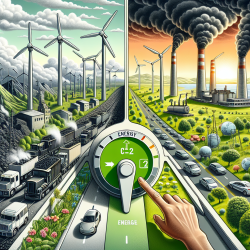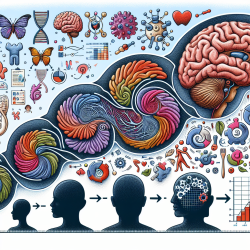The journey towards achieving net-zero CO2 emissions is a complex yet crucial goal for global climate policies. As practitioners in the field of sustainable development and energy policy, understanding the intricacies of this transition is essential. The recent research article "Energy systems in scenarios at net-zero CO2 emissions" sheds light on the pathways and challenges involved in reaching this goal. Here's how you can leverage these insights to enhance your practice.
The Role of Renewable Energy
The study highlights that renewable energy sources are projected to account for 60% of primary energy at net-zero emissions, a significant increase from today's 14%. Biomass will play a crucial role, contributing nearly half of the renewable energy. As a practitioner, staying informed about advancements in biomass technology and its integration into existing systems can position you as a leader in the transition to sustainable energy.
Electrification and Energy Use
Electricity is expected to make up approximately half of the final energy consumed at net-zero emissions. This shift underscores the importance of electrification across various sectors. Practitioners should focus on strategies to increase electrification in industries where it is currently underutilized. Understanding the challenges and opportunities in electrifying sectors like transportation and manufacturing can provide a competitive edge.
Addressing Regional Disparities
The research indicates that residual emissions and offsetting negative emissions will not be evenly distributed globally. This uneven distribution may impact negotiations on burden-sharing and equity. Practitioners should advocate for policies that address these disparities, ensuring fair and equitable transitions for all regions.
The Importance of Negative Emissions Technologies
The study emphasizes that negative emissions technologies will be vital in achieving net-zero goals. Practitioners should explore innovative solutions such as carbon capture and storage (CCS) and bioenergy with carbon capture and storage (BECCS). Engaging with these technologies early can provide insights into their feasibility and scalability.
Encouraging Further Research
This research opens several avenues for further exploration. Practitioners are encouraged to delve deeper into specific aspects such as technological innovations in renewable energy or policy frameworks that support rapid transitions. By contributing to ongoing research, practitioners can help shape future scenarios that align with global sustainability goals.
To read the original research paper, please follow this Energy systems in scenarios at net-zero CO2 emissions.










